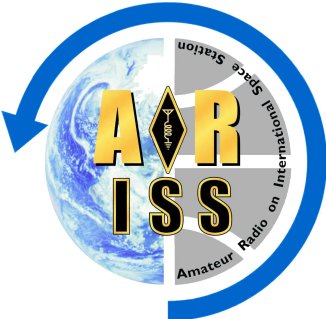
ARISS contact planned with technical college in Belgium

The non-profit association "Vrije Technische Scholen BSO/TSO" is an industrial technical school that has grown - during its over 100 years existence - to a worthful asset in Sint-Niklaas and the broader region as a training center for young technicians in the fields of mechanics, electricity, carpentry, construction, refrigeration engineering, automotive engineering, industrial sciences, etc. In line with present days standards for industrial and technical education and building on close collaboration with the industrial sector and the institutions for higher education, VTS has developed a programme with strong emphasis on "science and technology". The school's population amounts to about 800 pupils, male and female, aged 12 to 18-20 years.
VTS offers three educational levels:
VTS offers three educational levels:
- Theoretical technical education: prepares for higher education and can, from a theoretical perspective, be compared to general secondary education.
- Practical technical schooling: prepares for a career in industry at the level of Supervisor of the Manufacturing Process.
- Professional schooling: prepares for a career as qualified worker in the fields of carpentry, welding, building and so on.
These three training areas all cover 6 years. At the end of the technical schooling, the students obtain a secondary education's degree. Professional schooling students can access to this degree by successfully accomplishing an additional 7th year.
The ARISS project is one more initiative VTS is undertaking. Students and teachers regularly 'spice' the traditional schooling with additional assignments. This results in a more challenging educational process for all parties involved. To name just a few achievements of the previous years:
The ARISS project is one more initiative VTS is undertaking. Students and teachers regularly 'spice' the traditional schooling with additional assignments. This results in a more challenging educational process for all parties involved. To name just a few achievements of the previous years:
- the automotive division was awarded the "golden key", the first prize in the contest,
- srudents participate in the maths-olympics,
- Robocontest,
- Electrochallenge.
In the social field, where the well-being of the students is concerned, VTS won the first prize of the Queen Paola Contest "School Of Hope" 2009, with the project "from underprivileged to privileged".
In short, VTS BSO/TSO is a school where nobody is afraid of a challenge, which can be inferred from their participation in the fascinating ARISS-project.
The event will be broadcast in streaming video on http://justin.tv/on0snw.
The space conversation will be conducted in Dutch.
Students will ask as many of the following questions as time allows.
In short, VTS BSO/TSO is a school where nobody is afraid of a challenge, which can be inferred from their participation in the fascinating ARISS-project.
The event will be broadcast in streaming video on http://justin.tv/on0snw.
The space conversation will be conducted in Dutch.
Students will ask as many of the following questions as time allows.
- Aron (14): Op welke manier slaap je in de ruimte?
- Alexander (13): Wat zijn de eisen om astronaut te worden?
- Mathias (13): Hoe is het om de aarde van boven te zien?
- Stef (15): Is er internet in het ISS?
- Jarno (14): Hoelang duurt het om van de aarde naar het ISS te vliegen?
- Dennis (15): Wat doen jullie tijdens jullie vrije tijd in de ruimte?
- Larbi (14): Wat gebeurt er met het menselijk lichaam, zonder enige persoonlijke bescherming of cabine, tijdens zijn verblijf in de vrije ruimte?
- Cédric (12): Hoe wordt het ISS van zuurstof voorzien?
- Andy (15): Welke dagelijkse vaste taken moet een astronaut zeker uitvoeren?
- Maxim (13): Wat gebeurt er met een astronaut als hij ernstig ziek wordt in het ISS?
- Joran (17): Stel dat door een onbekende reden de communicatie-verbinding met de aarde voor lange tijd uitvalt, hoe vangt men dit probleem op?
- Nicky (13): Kan je, in geval van nood, opereren in het ISS?
- Thomas (16): Hoe bepaalt men het zwaarte-massapunt van het ISS?
- Narek (13): Hoe haalt een raket het ISS in?
- Sham (13): Hoe worden jullie gewogen in het ISS?
- Karim (14): Heb je een gevoel van snelheid in het ISS?
- Glen (14): Wat gebeurt er met verpakkingsafval in het ISS?
- Jesse (14): Is de lancering pijnlijk voor het menselijk lichaam?
- Wim (14): Hoe koud is het in de ruimte?
- Alex (15): Kan je onweer op aarde zien vanuit het ISS?
ARISS is an international educational outreach program partnering the participating space agencies, NASA, Russian Space Agency, ESA, CNES, JAXA, and CSA, with the AMSAT and IARU organizations from participating countries.
ARISS offers an opportunity for students to experience the excitement of Amateur Radio by talking directly with crew-members on-board the International Space Station. Teachers, parents and communities see, first hand, how Amateur Radio and crew-members on ISS can energize youngsters' interest in science, technology and learning.
73
Gaston Bertels, ON4WF
ARISS Chairman.


